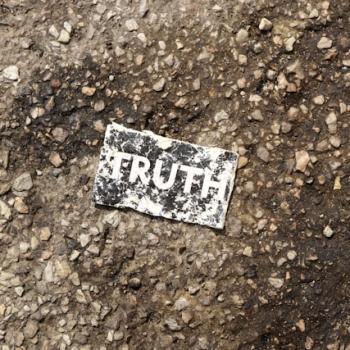
I vividly remember returning to our sending church after returning from Papua New Guinea to the United States. We sat down for our Sunday School, and I felt out of place being in the
adult class for the first time, as it had been four years since I last attended. The Sunday school teacher pulled out a large, heavy TV on its trundle. The kind that every American in my
generation is familiar with, and started a film created to critique the hit fictional book “The DaVinci Code.”
My family had no cultural context for the film. We sat through patiently, with a few confused glances, as the class hung onto every word. Little did I know that The DaVinci Code would be a
topic that was very familiar to me very soon. The author’s attack on the foundation of Christianity came in the form of a bestselling piece of fiction. But there were more men who
made their name on the critique of the Bible.
Biblical criticism has been a broad category for many years. The arguments have worn away at scripture until the common perspective, even amongst church-going Christians, is that the
scriptures are not inerrant. Furthermore, they are not inspired.
I have heard many of the arguments. However, when I earnestly dig into the evidence, I only find my position strengthened. I understand there may be some bias there, but I would argue the same for any case against scripture. If you doubt scripture’s veracity, I highly recommend you do your own research. We live in an incredible country where we have free access to information. However, I want to share some of the strongest indicators that the Bible is not, in fact, a fictional book.
The Historicity of Scriptures
Historical scholars once understood The Iliad and The Odyssey to be entirely works of fiction. After all, the poems are filled with stories of sirens, island sized sea monsters, and the wrath of
petty gods. It was only in 1870 that the actual City of Troy was discovered in Turkey, confirming that at least the setting of the epic was true.
This is a story that is repeated again and again in scripture. History didn’t have an outside source for Pontius Pilot or Caiaphas until recently. The Hittites were once only recognized in scripture. It wasn’t until 1876 that evidence was found of them. Historical evidence corroborates stories such as Sodom and Gamora and Joseph. Meanwhile, historical texts such as the works of Josephus corroborate the majority of the New Testament in independent historical records.
In reality, the scriptures have more evidence for their accuracy to the original text than most historical texts in ancient history.
The Accuracy of the Texts.
Atheists often compare scripture to a game of “Telephone”, saying it is a story passed down only through a verbal tradition. People such as Bart Ehrman have insisted that there are more inaccuracies in scripture than there are words, and the scripture is, therefore, not worthy of our trust. Not only do we not know if the scripture is accurate to historical truth, we don’t even know if the Scripture is accurate to what its authors originally wrote down.
What he is not honest about is that the reason we have so many variations is because we have so many different copies of the text. More, again, than any other historical text. We can date these
texts to within the lifetime of Christ’s disciples, within twenty to forty years after the death of Christ.
In addition, Greek is a highly inflected language. Over 99% of variations within scripture are spelling errors or differences in word order. Of the few that are valid variations, none significantly impact essential theology.
This sermon by Ben Stuart beautifully condenses some of the best arguments and evidence for this case. However, it is far from the only source. There are so many resources that show that not only does scripture accurately record the historical context within which it was written, but it also remains mostly unaltered in its record. If you were to call that into question, you would have to apply that to the rest of our historical texts.
There are more texts for the Bible than there are for all of Roman history. If we are hoping to throw out the Bible as being altered, we would also have to call into question every part of our understanding about the rise and fall of Rome. That doesn’t even begin to touch the other historical documents we rely on.

The Scientific Proofs of Scripture.
I have never been able to buy into the concept of macroevolution and abiogenesis (The idea of the beginning of life). Even my limited understanding of genetics, psychology, and sociology
has made the idea ludicrous to me. I can accept the idea of theological evolution (The idea that God used evolution to create the world, but guided the process) as a possibility, but not a
probability.
The world’s beginning, I think, is what many atheists and even Christians focus on while arguing for or against scripture, but I don’t think it is the most important. This is a great argument for theism, or even for monotheism, as a worldview. But when it comes to whether or not scripture is fiction or fact, I don’t know if the debate is worth our time.
Did you know, though, that scripture acknowledged a globe first? The concept of currents and jet streams was first discovered because scripture described them (Ecclesiastes 1:6-7, Psalm
8:8). Job and Amos describe the weather cycle before such an idea as evaporation ever existed. Job is full of details that ancient people would not have been able to know
without God’s explicit involvement.
I grew up in a third-world, tropical country where every meal we ate with the locals was a risk of parasites and illness. Covid hit Papua New Guinea with a vengeance. Most of the tribal people
don’t have any concept of bacteria or viruses. They do not wash their hands and clean their food in the same rivers they use as toilets and for bathing. It is not because they are stupid or
backward people, it is because they do not have access to the tools and education on the subject we might have in the Western world.
In the Levitical law, blood was associated with life, toilets and dead bodies were required to be kept outside of living spaces, and priests were required to wash their hands before handling food. Without knowing what bacteria or parasites were, there is no reason why any of these very logical steps should have been taken. Yet, the holy men of Isreal were tasked with safeguarding the physical health of the people of Isreal along with its spiritual health. It worked. Scripture talks many times about how the Israelites grew quickly as a nation.
While I don’t agree with some of the more outlandish concepts presented in the book, Signature of God by Grant Jeffrey is one of the first places I remember reading the details of how medical
advances today, from diet to cleanliness, line up with Levitical law. I highly recommend curious individuals look at this book.
In Conclusion
In order for these details of scripture to be accurate, they could not have been invented by some ancient fiction author. More importantly, scriptures could not have been written by any human author alone. They concur powerfully with each other, with letters even being referred to as scripture by their contemporaries. Ideas are not forced into a mold, but rather beautifully applied throughout centuries. The voice and the art of the authors are clear and bold, while still working in conjunction with the voices of others.
As an author who has worked with co-authors on projects in the past, I can confirm that this is nearly impossible. For even four authors to match tone, message, and consistency in one work
was more than we could manage.
So is the Bible fiction? I think for you to be satisfied, you need to do the research yourself. But for me, the resounding answer is no. No, it is impossible for the Christian Bible to be fiction. I don’t believe it has even significantly changed from its origins.
I believe that God has preserved everything we need to make the Holy Bible the tool of revelation we need in order to know God. Now the question is, if that is true, what then should we do? How should that fact impact our lives?
Join me on Monday 11/25/2024 to look at The Three Body Problem.













